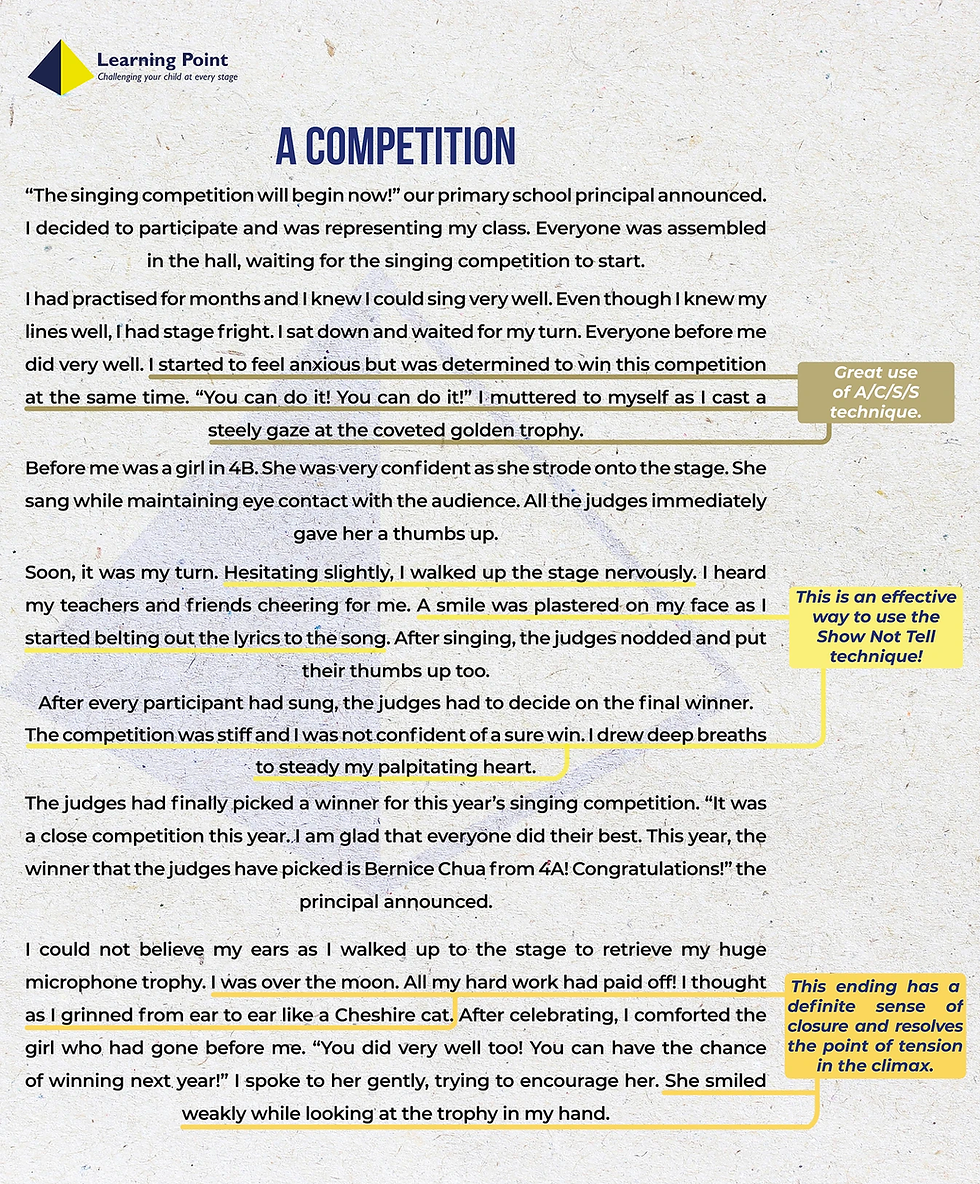
William Wheeler's wisdom, "Good writing is clear thinking made visible," rings true even in the realm of primary school English compositions. Crafting an English composition is not merely about reaching a word count; it's about making each word count for the reader. This blog delves into the evolution of composition writing, showcasing how a student can progress from average to exceptional.
The Journey from Average to Exceptional Writing
1. The Initial Stage: Overcoming Repetition and Plot Gaps
Our journey begins with an early English composition from a P4 student. This piece, though earnest, suffered from repetitive phrases and lacked a cohesive storyline, with abrupt jumps and minimal emotional connection with the characters.
Key Flaws:
Overused phrases.
Disjointed plot progression.
Lack of emotional depth and character development.
Abrupt ending with little closure.
2. The Transitional Stage: Improvements and Persisting Challenges
Months later, the same student crafted an English composition about a mischievous act. Notable improvements were evident in the descriptive language and story setup.
Continuing Challenges:
Some plot holes remained unresolved.
Character motivations and actions were unclear.
The conclusion, though improved, still lacked depth and emotional resonance.
3. The Breakthrough: Crafting a Good Composition
Fast forward to a more recent piece, and we see a marked transformation. The student now adeptly sets the stage, uses the "Show, Not Tell" technique effectively, and builds suspense in the plot.
Highlights of Excellence:
Engaging and context-rich introduction.
Improved emotional connection through descriptive narration.
Cohesive and compelling storyline.
A satisfying conclusion that leaves the reader content.
Effective Strategies for Composition Mastery
Expanding Vocabulary: Encourage your child to replace simple adjectives with more vibrant ones. This not only broadens their vocabulary but also adds depth to their narratives.
Dynamic Sentence Starters: Guide them to start sentences in diverse ways to avoid monotony and spark interest.
Reverse Engineering: Analyze model compositions to understand good story structure and flow.
Spelling Notebook: Keep a log of spelling errors for regular revision and improvement.
Phrase Collection: Encourage your child to gather impressive phrases, categorizing them for easy access during writing sessions.
These strategies aren’t just about improving scores; they're about nurturing a love for language and storytelling. Witnessing a child’s growth from an average writer to a confident storyteller is one of the most rewarding experiences for a parent and educator.




Comments